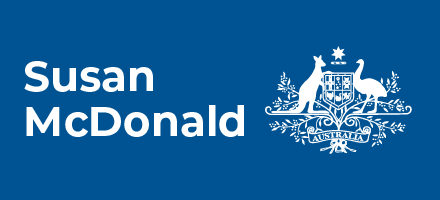EASTER FISH FEASTS UNDER THREAT FROM LABOR’S NET BAN
Shadow Minister for Northern Australia, Senator Susan McDonald, and Queensland seafood identities have warned the traditional Australian Easter fish banquet is under threat unless the Queensland and Federal Governments stand up to a UNESCO demand to ban net fishing and instead back the state’s well-regulated and sustainable commercial fishers.
Senator McDonald has been campaigning against the bans since mid-2023 and this week invited impacted Queensland fishers to Canberra to discuss the issue, including Burdekin-based Sienna Green who was this month named the Queensland Seafood Marketers Association’s “Young Achiever” for her work publicising the sustainability of net fishing.
“The Queensland Government – with the full support and encouragement of the Labor Federal Government – has rushed to do the bidding of UNESCO and completely ignored the people involved in the industry, the jobs it provides and the regional communities it supports,” said Senator McDonald.
“This is appalling overreach and it’s not backed by the federal Fisheries Research and Development Corporation which lists all the main net-caught species as sustainable on Queensland’s East Coast.
“I invited fishers to Canberra to cook barramundi burgers for politicians and journalists to highlight that the wild-caught variety of this fish – a table favourite around the country, especially on Good Friday and Easter – will be more scarce and more expensive because of this net ban.
“For once, Labor must put Australia’s interests above those of unelected international activist bodies who don’t just want to regulate fishing, but stop it altogether.”
Sienna’s fisherman father, Neil Green, said banning net fishing was a gross overreaction that would have severe impacts on fishers, consumers and retailers.
“There is no net fishing anywhere near the Great Barrier Reef, and the creeks, rivers and foreshores that are fished make up just 0.2% of reef waters. This leaves 99.8% of the world heritage waters closed to net fishing,” he said.
“Barramundi licences in Queensland this year have been reduced from over 90 to 23, robbing consumers, restaurants and retailers of wild-caught barramundi. It will potentially deny them the opportunity entirely after mid-2027 when these 23 licences expire.
“The treatment of professional fishers is a warning to other primary producers because UNESCO has advised the Federal Government that all food production in reef catchments must be further regulated, and the Government has agreed.
“All primary industries and associated businesses in regional and coastal areas of Queensland need to band together before the government comes after them.
“We’re calling on the government to reverse this net ban and stand up to UNESCO before this and other important food producing primary industries are sent to the wall.”
Queensland Seafood Industry Association chief executive David Bobbermen said the Queensland Labor Government had ignored fishers’ input and the industry’s moves to reduce impacts on non-target species and improve sustainability.
“There is a lot of science that supports the use of gillnets as one of the most targeted and low carbon emitting fishing methods,” he said.
“Many small regional and remote community economies are struggling, and the loss of net fishing is simply another nail in their coffin.
“The decision to remove gillnets from the GBRMP is ideologically driven by faceless organisations after years of campaigning key government decision makers using outdated and erroneous data, and blackmailing the Federal and State Governments with threats to Australia’s tourism industry to place the Reef on the UNESCO ‘In Danger’ list.”
Stefan Diacos of Queensland wild-caught seafood marketers A. Raptis & Sons said tonnages of all fish affected by the net bans were down, and prices were up.
“It’s simple supply and demand. With fewer people fishing, consumers will pay more for their favourite wild-caught fish,” he said.
“We’re at risk of this product only being available to the wealthy, and that’s not how it should be.”
ENDS

